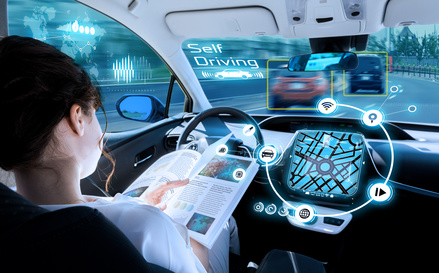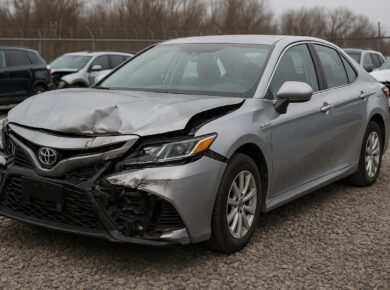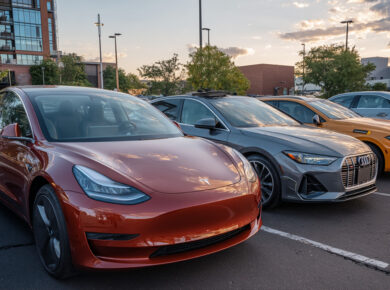We all, at some point, have felt exhausted and exasperated behind the driving wheel, wishing our cars would drive themselves. The good news is, various techie giants, such as Intel, Apple and Google, are working on different driverless car projects and there are good chances you will be able to live your dream of scanning through the pages of your favorite tabloid or answering all those missed calls – while your car navigates itself. Automobile industry, car enthusiasts and tech gurus are all gung ho about driverless cars and seem to be quite sure that they will change our world drastically. How, you ask? Read on!

1. Safer Roads
According to a World Health Organization report, about 1.24 million people perish in road accidents every year. Driverless cars will run on autopilot mode, meaning the embedded software will carefully scan its environment and modify the driving pattern accordingly. Plus, the introduction of driverless cars will reduce accidents caused due to drunk driving, road rages and driver incompetencies. The results of a study done by Eno Center of Transportation, a think tank on a mission to seek continuous improvement in transportation reaffirms the fact. The independent body estimates accidents would have fallen drastically from 6 million to 1.3 million, if 90 percent of cars on American roads were autonomous.
2. Healthier Environment
Driverless cars will be able to communicate with other cars on the road and will have smart routing systems, which will help combat the problem of traffic congestion to a greater extent. These cars will have smoother acceleration and braking, and will help decrease the wind resistance, thereby, having a positive impact on the vehicle’s fuel-efficiency. A report published by McKinsey suggests that using driverless cars worldwide will help reduce CO2 emissions by 300 million tons, which means lesser fuel stops for you.
3. Decline in car Ownership
Experts estimate the mass scale introduction of car ownerships into global markets will drastically impact car ownership. University of Michigan Transportation Research Institute expects this decline to be around 43 percent. More people will prefer taking shared rides as compared to owning cars. These estimates are based on cost effectiveness of using a robo taxi to commute. Casualty Actuarial Society estimates using a shared driverless car will help reduce commutation costs by 80 percent as compared to travelling in a conventional vehicle (when driven 10,000 miles a year).
4. More Leisure Time
With advanced features such as intelligent acceleration, speed control, efficient braking system and state-of-the art parking control assist at its side, driverless cars will help save time otherwise wasted by commuters getting stuck in traffic jams and long parking queues. According to Mckinsey the total time saved by drivers using robo cars can be as much as 50 billion hours.
5. Enhanced Mobility for the Differently Abled
People with epilepsy, vision impairment and elders will not require driving licenses, which will make car ownership way less troublesome for them. Increased mobility can spruce up the employment rate among the differently abled, which will benefit the economy. Owning a driverless cars will also help these people overcome logistic challenges,, as Google in a 2014 demonstration showed, when it let a blind man run errands using one of their driverless cars.
Are you Ready for the Revolution?
Some states in the U.S. already have driverless cars running on their streets, however, auto and tech companies are still working on the technology to make their cars safer and more efficient. Though driverless cars will surely make the world a more habitable place, it will be a few years, to say the least, for you to be able to lay your hands on these futuristic machines. As for now, if you are looking for a budget ride, consider investing in a salvage vehicle. We organize a number of online car auctions, where you can buy your favorite model at an affordable price. To learn more about our online car auctions or any of the vehicles listed with us, simply call +1 (360) 347-1300.





